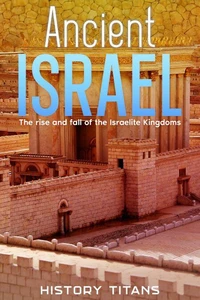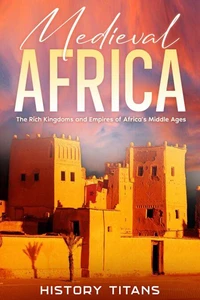Gilgamesh: The History and Mythology of the Sumerian King
Par :Formats :
Disponible dans votre compte client Decitre ou Furet du Nord dès validation de votre commande. Le format ePub est :
- Compatible avec une lecture sur My Vivlio (smartphone, tablette, ordinateur)
- Compatible avec une lecture sur liseuses Vivlio
- Pour les liseuses autres que Vivlio, vous devez utiliser le logiciel Adobe Digital Edition. Non compatible avec la lecture sur les liseuses Kindle, Remarkable et Sony
 , qui est-ce ?
, qui est-ce ?Notre partenaire de plateforme de lecture numérique où vous retrouverez l'ensemble de vos ebooks gratuitement
Pour en savoir plus sur nos ebooks, consultez notre aide en ligne ici
- FormatePub
- ISBN978-1-393-64665-5
- EAN9781393646655
- Date de parution11/07/2020
- Protection num.pas de protection
- Infos supplémentairesepub
- ÉditeurRelay Publishing
Résumé
The name of Gilgamesh is one that resounds all over the world and has been well-known for thousands of years. Of all the most illustrious figures of history and human heritage, Gilgamesh also happens to be one of the most mysterious. This is because, in a way, there are two sides to Gilgamesh and two ways in which we approach his story. As far as official history is concerned, Gilgamesh was most likely an ancient Sumerian king who ruled the city-state of Uruk at some point between 2800 and 2500 BCE.
In literature, folklore, and ancient traditions of Mesopotamia, Gilgamesh has become the subject of many legends and one of the most important heroes in Mesopotamian mythology. Gilgamesh's legendary life was a story of great triumphs, falls, loss, soul-searching, and a quest for meaning. It is a story that involves a great character arc since Gilgamesh's physical journey is matched only by the distance he had traveled toward growing as a ruler and as a man.
In literature, folklore, and ancient traditions of Mesopotamia, Gilgamesh has become the subject of many legends and one of the most important heroes in Mesopotamian mythology. Gilgamesh's legendary life was a story of great triumphs, falls, loss, soul-searching, and a quest for meaning. It is a story that involves a great character arc since Gilgamesh's physical journey is matched only by the distance he had traveled toward growing as a ruler and as a man.
The name of Gilgamesh is one that resounds all over the world and has been well-known for thousands of years. Of all the most illustrious figures of history and human heritage, Gilgamesh also happens to be one of the most mysterious. This is because, in a way, there are two sides to Gilgamesh and two ways in which we approach his story. As far as official history is concerned, Gilgamesh was most likely an ancient Sumerian king who ruled the city-state of Uruk at some point between 2800 and 2500 BCE.
In literature, folklore, and ancient traditions of Mesopotamia, Gilgamesh has become the subject of many legends and one of the most important heroes in Mesopotamian mythology. Gilgamesh's legendary life was a story of great triumphs, falls, loss, soul-searching, and a quest for meaning. It is a story that involves a great character arc since Gilgamesh's physical journey is matched only by the distance he had traveled toward growing as a ruler and as a man.
In literature, folklore, and ancient traditions of Mesopotamia, Gilgamesh has become the subject of many legends and one of the most important heroes in Mesopotamian mythology. Gilgamesh's legendary life was a story of great triumphs, falls, loss, soul-searching, and a quest for meaning. It is a story that involves a great character arc since Gilgamesh's physical journey is matched only by the distance he had traveled toward growing as a ruler and as a man.

















